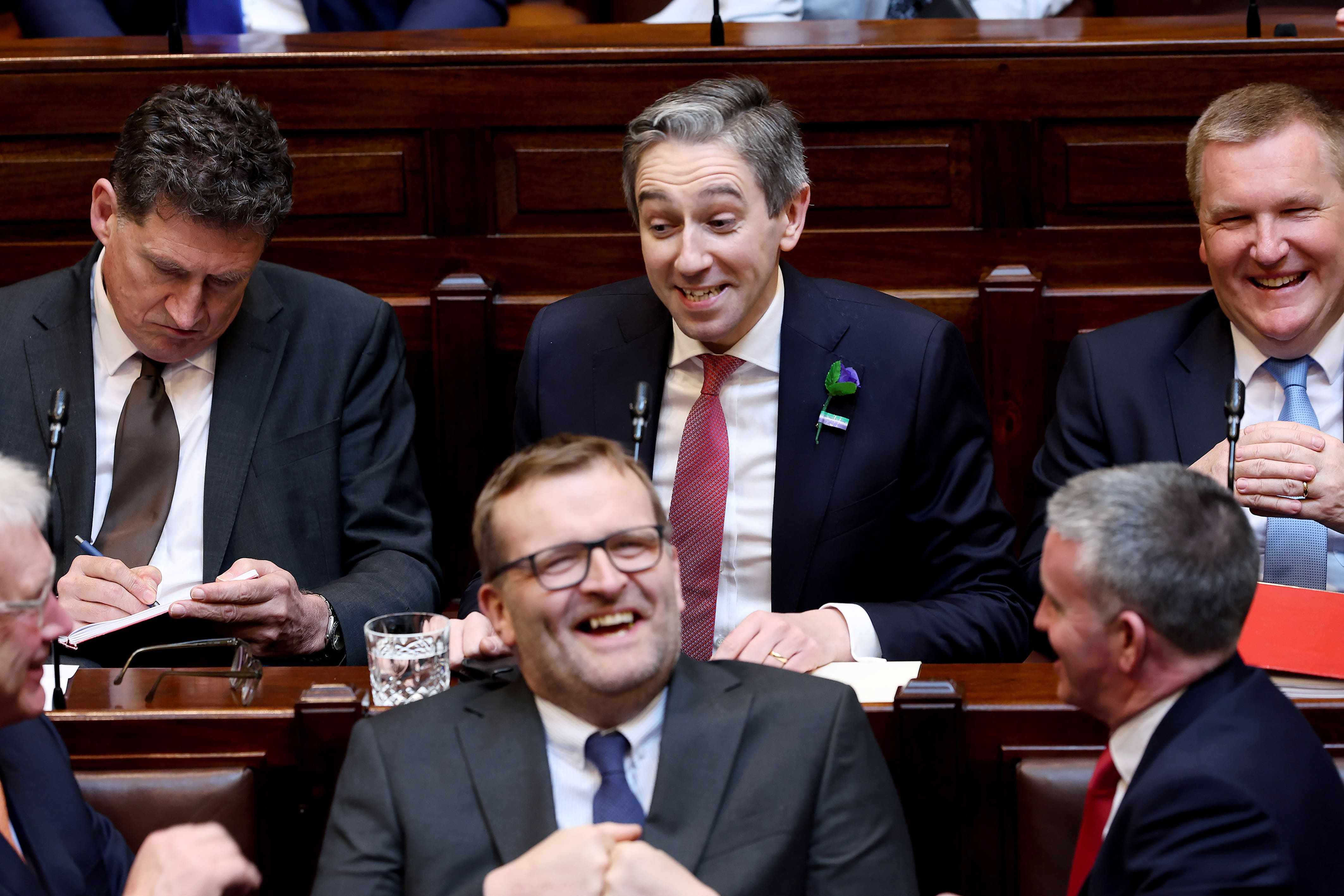Simon Harris poised to become Ireland’s next premier
Leo Varadkar shocked the country when he announced he was stepping down almost three weeks ago.

Your support helps us to tell the story
From reproductive rights to climate change to Big Tech, The Independent is on the ground when the story is developing. Whether it's investigating the financials of Elon Musk's pro-Trump PAC or producing our latest documentary, 'The A Word', which shines a light on the American women fighting for reproductive rights, we know how important it is to parse out the facts from the messaging.
At such a critical moment in US history, we need reporters on the ground. Your donation allows us to keep sending journalists to speak to both sides of the story.
The Independent is trusted by Americans across the entire political spectrum. And unlike many other quality news outlets, we choose not to lock Americans out of our reporting and analysis with paywalls. We believe quality journalism should be available to everyone, paid for by those who can afford it.
Your support makes all the difference.The Dail parliament in Dublin has convened ahead of the expected election of Simon Harris as Ireland’s next premier and the country’s youngest leader.
The 37-year-old father-of-two will be appointed Ireland’s 15th Taoiseach, after the surprise resignation of Leo Varadkar as Fine Gael leader three weeks ago.
Proceedings in Ireland’s lower house of parliament commenced shortly at 10.30am on Tuesday with an address by Mr Varadkar.
He said his time in politics had been the “most fulfilling and rewarding time” of his life.
“But today is the beginning of a new era for my party, a new chapter in my life and a new phase for this coalition Government,” he said.
Fine Gael deputy leader and social protection minister Heather Humphreys proposed Mr Harris as Taoiseach.
She recalled the first time she met Mr Harris in the Dail in 2011 and thinking the “young lad” was on a school tour or work experience.
Ms Humphreys described Mr Harris as having “endless amounts of energy”, adding he was someone who “cares deeply about improving services for families”.
She said it was a “great honour” to propose her party leader as Taoiseach.
The nomination was seconded by Fine Gael minister of state Peter Burke.
He commended his achievements as a government minister, listing Mr Harris’s attributes as: the ability to listen; compassion; an agile mind; the ability to speak without hesitation; and a firm belief in his abilities.
Mr Burke said it was time to get on with the work of Government.
He said Mr Harris would lead the coalition with a “renewed energy, with compassion, bringing it right back to the core of politics”.
Mr Harris’s wife Caoimhe and young children Saoirse and Cillian were in the Dail’s public gallery for the start of proceedings, as were his parents and brother and sister.
As the Government holds a majority in the Dail, Mr Harris is set to win the vote to become Taoiseach later on Tuesday.
Mr Varadkar officially resigned as taoiseach on Monday when he handed in his letter of resignation to Irish President Michael D Higgins.
During his resignation speech in March, Mr Varadkar said he felt he was no longer the right person to lead his party.
On Tuesday, Ireland’s deputy premier and Fianna Fail leader Micheal Martin paid tribute to the former taoiseach.
Fianna Fail entered into a coalition Government with Mr Varadkar’s Fine Gael party and Eamon Ryan’s Green party in 2020.
Mr Martin said Mr Varadkar had served his community, his party and his country in the highest offices.
“This service has been through often quite difficult times which required the Government and the Oireachtas to respond to rapidly changing events,” he said.
“During the past four years, we have served in Government together, including the tense and often isolated times during the pandemic.
“I very much appreciate the spirit of open and honest discussion in which we were able to operate.”
Mr Varadkar announced his resignation almost two weeks after two referenda proposed by the Government were defeated, and as 11 members of the Fine Gael parliamentary party said they would not contest the next election.
When Mr Varadkar was appointed Fine Gael leader in 2017, members had hoped he would be an electoral boon for the so-called “law and order” party.
But the 2020 general election saw a drop in their support from 26% in 2016 to 21%, and they failed to win a 2021 by-election.
In the wake of Mr Varadkar’s resignation, Mr Harris emerged as the only contender to replace him.
After being appointed Fine Gael leader, he pledged to focus on more “bread and butter” issues and has repeatedly mentioned supporting small businesses facing high costs, helping farmers and focusing on crime and security.
He said that the party has a “real job” to “reconnect and renew our focus” on several fronts and must rebuild its “sense of self-belief and energy”.
He has also repeatedly said that he intends for the coalition Government – between Civil War-era rivals Fine Gael and Fianna Fail, as well as the Greens – to run its full term to March 2025.
Mr Harris’s first task as Taoiseach will be handling a reshuffle of Fine Gael ministers, including which of his colleagues replaces him as Minister for Further and Higher Education.
The People Before Profit party is planning a protest outside Leinster House on Tuesday against Mr Harris being appointed Taoiseach without an election being called.